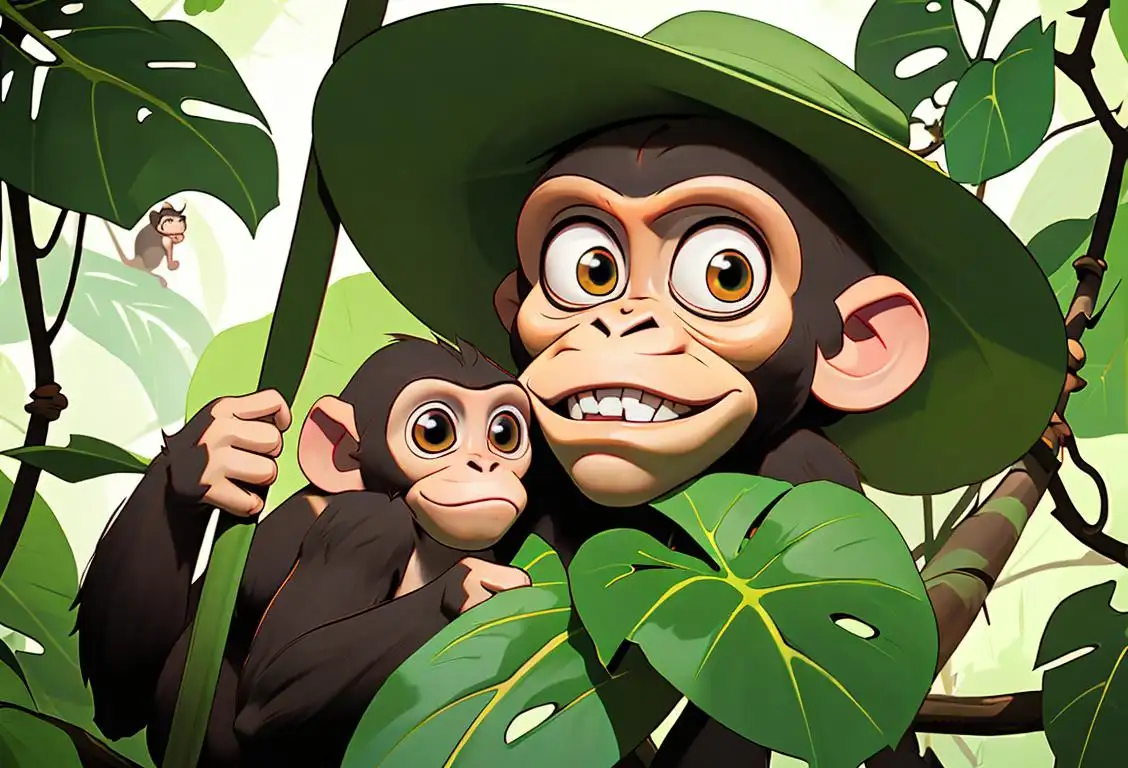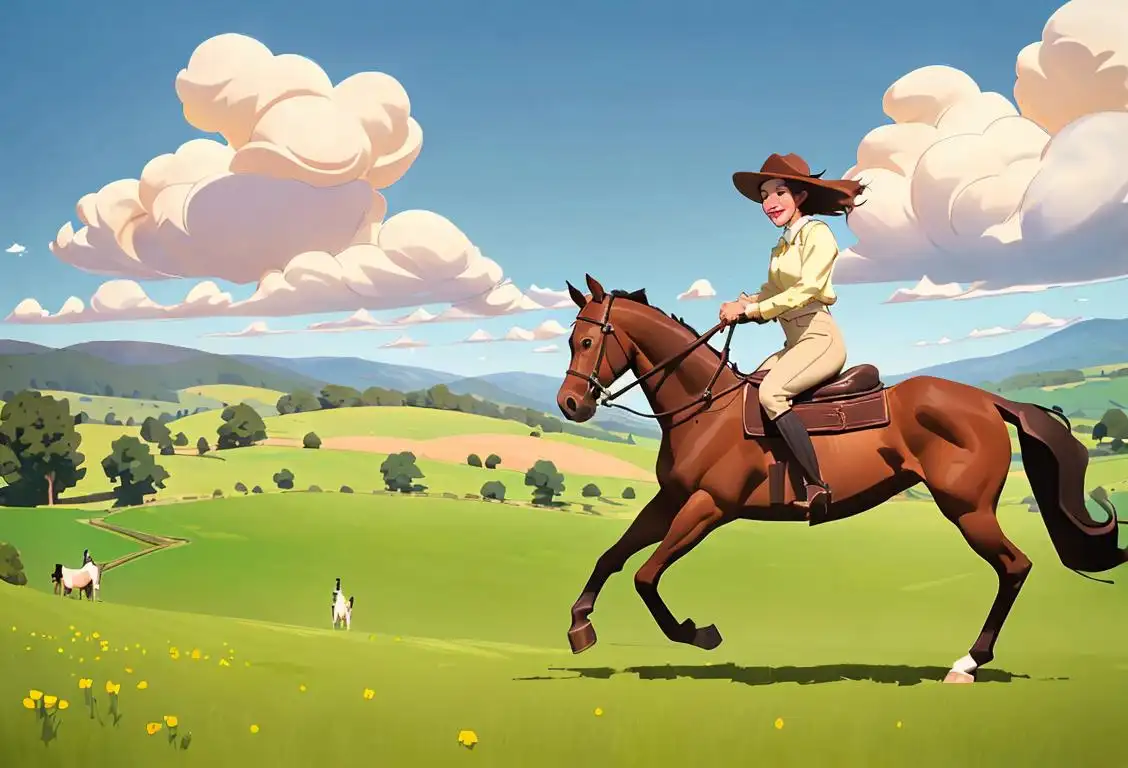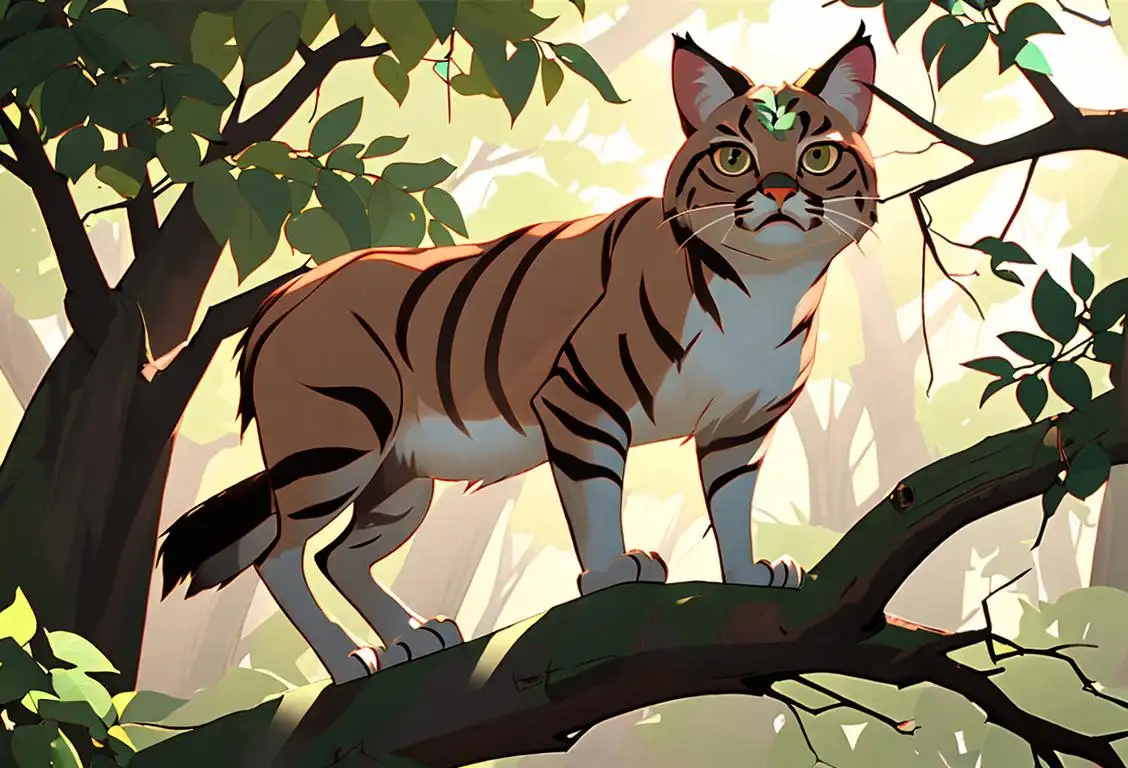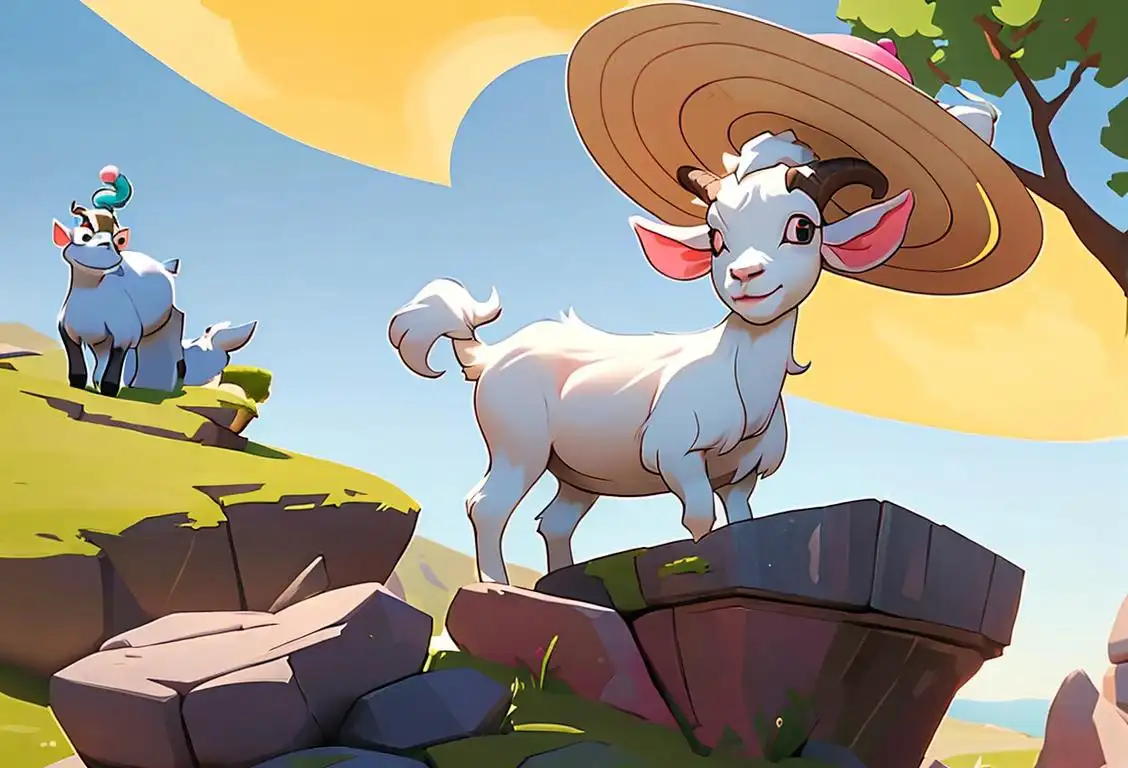National Monkey Day

Welcome to the wild and wacky world of National Monkey Day! Get ready to swing from the branches of knowledge and discover all things simian. Whether you're a fan of those mischievous monkeys or just curious about their antics, National Monkey Day has got you covered. So, let's put on our imaginary banana hats and dive into the fascinating history of this cheeky celebration!
When is Monkey Day?
It's national monkey day on the 14th December.
The Evolution of National Monkey Day
If you're wondering how National Monkey Day came to exist, you might be surprised to learn that it has its roots in the vast and unpredictable jungle known as the internet. The origin story begins with a small community of monkey enthusiasts who gathered in an online forum to share their love of all things primate.
As the story goes, one particularly enthusiastic member of the forum decided to establish a day of celebration dedicated solely to monkeys. And so, on this day, the internet erupted with playful chatter, adorable monkey pictures, and an overwhelming sense of simian solidarity.
Monkeying Around Online
Since its inception, National Monkey Day has taken the internet by storm. From viral videos of monkeys engaged in hilarious antics to heartwarming stories of monkey rescue and rehabilitation, the online world has embraced our furry, tree-swinging friends with open arms.
Social media platforms overflow with monkey-related hashtags and memes, bringing a taste of the jungle into our daily scrolling adventures. Monkey-themed memes even infiltrate office chatter, making it impossible to escape the infectious joy that these mischievous creatures bring. After all, who can resist the charm of a monkey in a tiny hat?
A Day of Monkeying Around
On National Monkey Day, people come together to celebrate in various monkey-inspired ways. Some visit local zoos or wildlife sanctuaries to learn more about these fascinating creatures and support their conservation efforts. Others organize monkey-themed parties, complete with banana-shaped snacks and costumes that would make any chimp proud.
For those who prefer a more low-key celebration, tuning into nature documentaries about monkeys or reading a book about their behavior serves as an educational yet entertaining experience. Let's not forget the online enthusiasts who take this day as an opportunity to flood social media feeds with pictures and videos of our furry friends.
Did You Know?
Did you know that monkeys are known for their intelligence and clever problem-solving skills? Researchers have observed monkeys using tools, such as rocks or sticks, to help them with various tasks. So next time you're facing a challenging problem, channel your inner monkey and get creative!
History behind the term 'Monkey'
1500
Origins in Old English
The term 'monkey' can be traced back to Old English, where it was first used to refer to a popular member of the animal kingdom: the ape. In Old English, the word 'monk' meant 'ape' or 'monkey,' likely due to the resemblance between the animal's behavior and that of a monk. This usage reflected the strong influence of the animal in ancient cultures.
1620
Transfer to the Americas
As European explorers began colonizing the Americas, they brought their languages and cultural references with them. The term 'monkey' was among the words that made their way across the Atlantic. It became firmly entrenched in the English spoken in the American colonies, carrying its original meaning as well as new connotations that arose from encounters with native primates.
1875
Scientific Classification
In the 18th and 19th centuries, scientific inquiry into the natural world led to the development of modern taxonomy. This included the classification of primates, which revealed distinct differences between apes and monkeys. Apes, such as chimpanzees and gorillas, were classified in their own family, while monkeys formed a separate group. The term 'monkey,' consistent with its historical usage, came to refer specifically to the members of this primate family.
1920
Cultural Symbolism and Expressions
Throughout the 20th century, monkeys became increasingly prominent in popular culture, literature, and expressions. Their mischievous behaviors, intelligence, and similarities to humans resonated with people across different cultures. Monkeys became widely recognized as symbols of playfulness, curiosity, and agility. Expressions such as 'monkey business' and 'monkeying around' entered the English language, conveying the idea of disruptive or mischievous behavior.
2019
Internet Memes
In the modern age of internet culture, the term 'monkey' has taken on new dimensions. Through viral memes, videos, and images circulated online, monkeys have achieved a special place in the collective consciousness. Cute and funny monkey pictures evoke a sense of delight and often draw widespread attention. The internet has contributed to the ongoing cultural relevance of monkeys, providing a platform for their images and antics to captivate millions of people around the world.
Did you know?
Did you know that monkeys are known for their intelligence and clever problem-solving skills? Researchers have observed monkeys using tools, such as rocks or sticks, to help them with various tasks. So next time you're facing a challenging problem, channel your inner monkey and get creative!Tagged
fun celebration animalsFirst identified
25th August 2015Most mentioned on
14th December 2020Total mentions
1064Other days
Dog Updog Day
Pupper Day
Cat Cat Day
Puppies Day
Monkey Day
Horse Day
Bobcat Day
Floof Day
Goat Day
Jay Day








